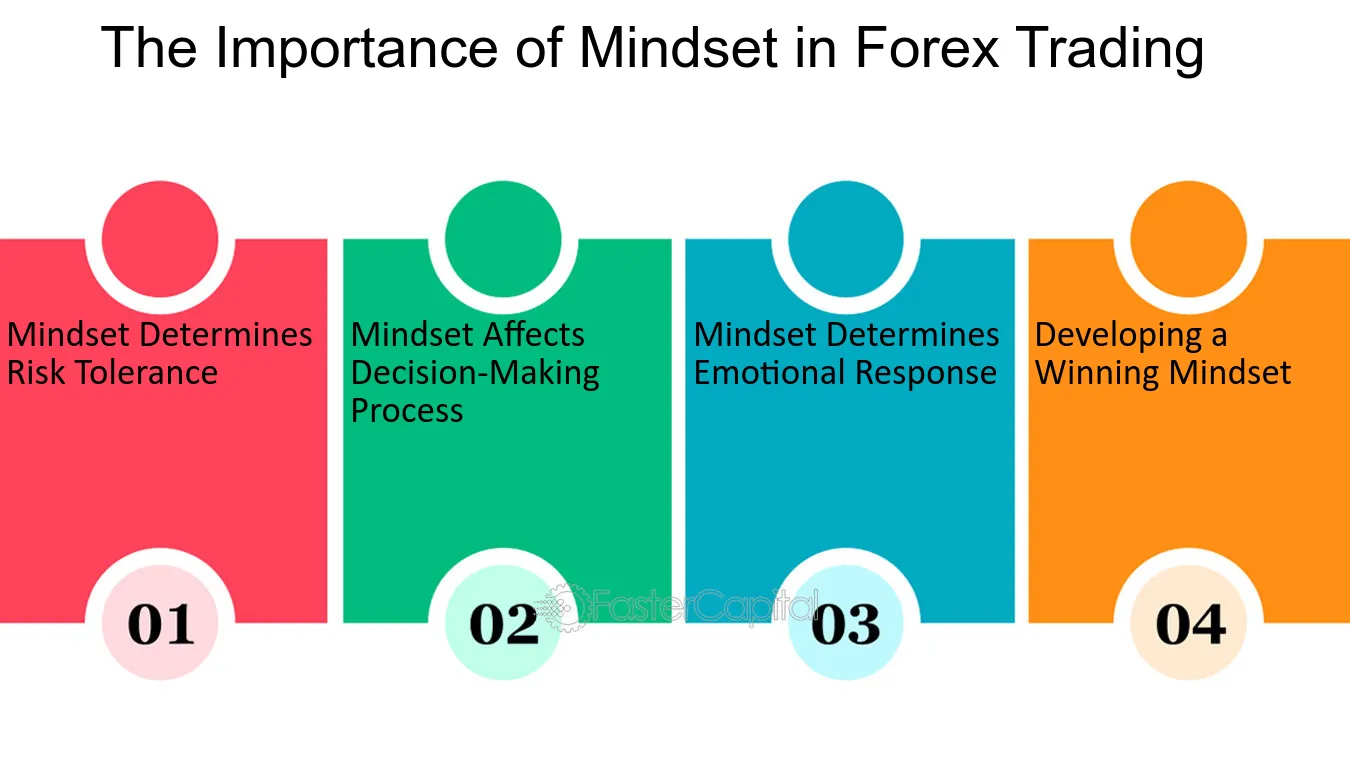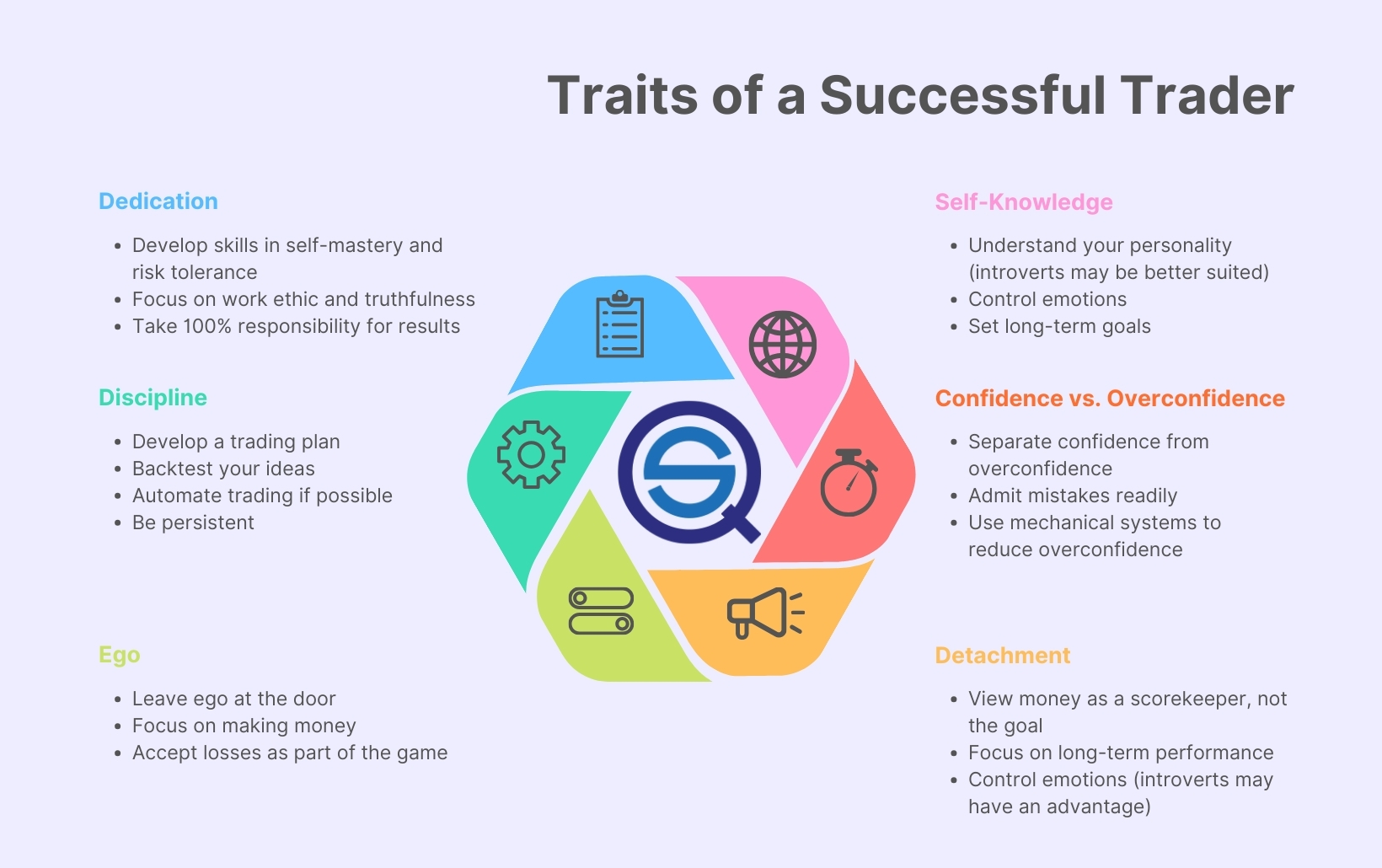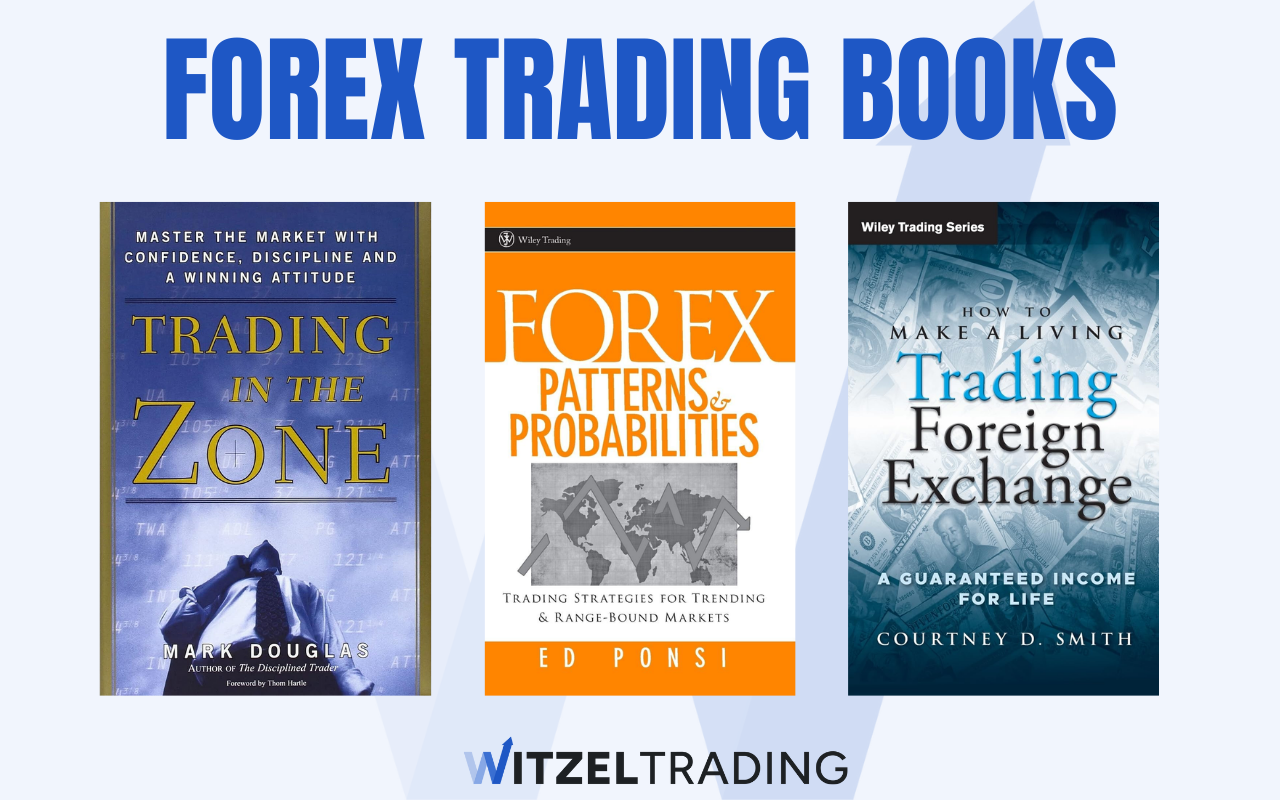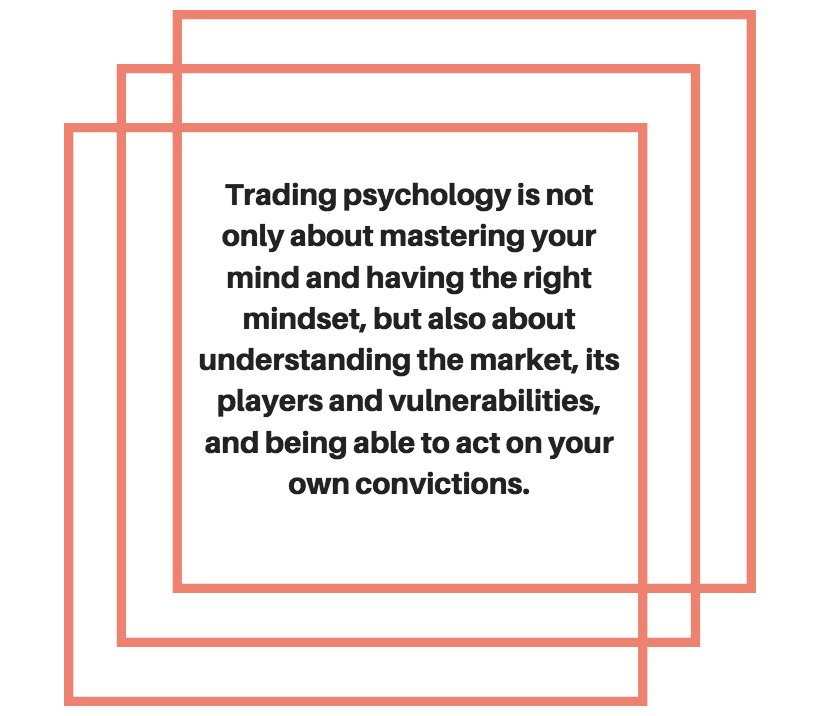When I first started trading Forex, I thought the key to success was finding the perfect strategy. I obsessed over indicators, backtested setups, and spent hours tweaking charts. But despite all the prep, I kept losing money. And it wasn’t until I confronted my own emotions that things changed.
You see, no one told me the biggest challenge wasn’t the market — it was me. My fear made me exit winners too early. My greed pushed me to overtrade. And my frustration after losses? Let’s just say revenge trading almost wiped me out.
If you’re here, chances are you’ve felt that emotional rollercoaster too. The good news? You can train your mindset like any skill — and it’ll change everything about the way you trade.
- Why mindset beats strategy every time
- Common emotional traps that sabotage your trades
- Simple strategies to stay calm and focused
- Real tips I used to fix my emotional habits
If you’re tired of letting emotions rule your trades, you’re in the right place. Below, you’ll learn the real mental tools that helped me find consistency — and they can do the same for you.
Why Psychology Matters in Forex
The Role of Emotions in Trading
Emotions like fear and greed don’t just mess with your head — they shape your trading decisions. Back when I first went live, I’d freeze the moment my trade went red. One small loss and I’d panic close, only to watch it reverse in my favor five minutes later.
Sound familiar? Here’s what I learned:
- Fear makes you hesitate — or worse, hold losing trades too long.
- Greed pushes you to overtrade or increase your lot sizes out of FOMO.
- Frustration leads to “revenge trading” — trying to win back losses emotionally.
The chart below helped me understand just how often these emotions triggered bad decisions:

Mindset vs. Strategy: What’s More Important?
I used to think I just needed a better strategy. But here’s the truth: the best setup means nothing if you can’t follow it with discipline. I learned that the hard way after backtesting a system for months, only to sabotage it with emotional exits.
You can’t code discipline. You can’t backtest patience. Those come from your mindset. And the traders who last? They’ve all mastered it — whether they’re scalping or holding long-term positions.
Common Psychological Traps in Forex Trading
Greed, Overtrading & Risk Addiction
After my first big win, I felt unstoppable. I doubled my next lot size — and blew half my account. Overconfidence had me chasing profits, skipping setups, and breaking every rule I made.
This is how greed sneaks in:
- You win once, so you risk more “just this time.”
- You see a move you “missed,” so you jump in late.
- You have five trades open when your plan only allowed one.
That high you get from a winning trade? It’s addictive. And just like gambling, it can make you risk way more than you should. Don’t ignore the warning signs.

Fear, Freezing, and Holding Losers
I’ve been there — you enter a trade, it dips, and your heart starts racing. Instead of sticking to the plan, you either close early out of fear or hold hoping it’ll come back. Neither ends well.
Why we do it:
- Fear of loss makes you pull out of good trades early.
- Fear of being wrong keeps you holding losing trades too long.
- Fear of missing out pushes you into bad setups.
I had to retrain my brain to accept loss as part of the process. That mindset shift changed everything.
Overconfidence After a Winning Streak
This one’s sneaky. After a few wins in a row, I thought I cracked the code. I started increasing my position sizes, skipping confirmations, and thinking “I got this.”
Then the market humbled me. Fast.
Overconfidence leads to:
- Ignoring risk management
- Breaking your plan
- Forcing trades to keep up momentum
Now, after a win, I take a break. I reset. Because nothing kills consistency faster than cockiness.
Strategies to Master Your Trading Mindset
Journaling and Self-Reflection
I resisted journaling at first. It felt like homework. But once I started logging how I felt before and after each trade, I saw patterns. Fear showed up on Mondays. Greed hit hardest after a green week.
What I track now:
- My pre-trade emotion (calm, anxious, excited)
- Why I entered — was it planned or impulsive?
- What I learned — emotionally and technically
Over time, this gave me a psychological edge. I started recognizing emotional triggers before they affected my trades.
Risk Management as a Psychological Tool
Risk management isn’t just about protecting your account — it’s about protecting your mind. When I know I’m only risking 1% per trade, I don’t panic when things go red.
Here’s how it helped me:
- I sleep better knowing one bad trade won’t wreck me.
- I focus on process, not outcome.
- I stay calm during drawdowns.

Meditation, Mindfulness & Routine
I didn’t believe in meditation until I tried it before a volatile NFP release. I sat for 5 minutes, focused on my breath, and walked into the session centered. It was the first time I felt fully in control — win or lose.
Now, I have a pre-trade routine:
- 5-minute breathwork or journaling
- Visualize trade setups — no music, no distractions
- Review risk parameters before clicking “Buy”
You don’t need to become a monk. Just carve out a calm, consistent process before you start clicking buttons.

| Psychological Challenge | How It Affects Trading | Mindset Solution |
|---|---|---|
| Greed | Overtrading, oversized positions | Use fixed risk rules, step away after wins |
| Fear | Exiting early, skipping trades | Trust your system, journal patterns |
| Frustration | Revenge trading, emotional decisions | Take breaks, practice mindfulness |
| Overconfidence | Ignoring risk plan, trading impulsively | Reset after wins, reduce size intentionally |
Long-Term Psychological Growth
Consistency Beats Intensity
One of the hardest lessons I had to learn? You don’t need to “win big.” You need to win consistently. When I slowed down and focused on showing up with discipline every day — not just chasing profits — my trading stabilized.
I stopped caring about hitting home runs. Instead, I measured success by how well I followed my plan. That shift alone made trading less stressful and *more profitable*.
If you’re burning out from overtrading or emotional swings, try this: set tiny goals. Stick to your plan for 5 trades. Then 10. Build your mental strength like you would at the gym — slow, steady reps.
Learning From Losses Without Shame
I used to beat myself up after every red trade. I’d replay the chart, curse myself, and spiral into doubt. But that shame didn’t make me a better trader — it made me hesitant and afraid.
Eventually, I started seeing losses as tuition. Every mistake was a lesson if I took time to study it. I learned to ask, “Did I follow my plan?” If yes, then the loss was part of the process. If no, I’d journal the emotion that made me slip — and plan how to avoid it next time.
Over time, I built something better than confidence: resilience. Now, a loss doesn’t throw me off. I adapt, reflect, and move forward with more clarity than before.
FAQ: Mindset Questions I Hear All the Time
What is trading psychology in Forex?
It’s all about how your mind impacts your trades. Your thoughts, emotions, and beliefs shape your decisions. Mastering psychology means staying calm, disciplined, and focused no matter what the market throws at you.
How do I control my emotions while trading?
You don’t “eliminate” emotions — you learn to manage them. I use journaling, meditation, and strict risk management to stay grounded. Recognize your emotional patterns, and build habits that keep you centered.
Why do traders lose money after winning streaks?
It’s usually overconfidence. After a few wins, you feel invincible. That’s when traders abandon plans, risk too much, or chase setups. I’ve done it myself. The fix? Stay humble, stick to your rules, and take breaks to reset.
Can mindfulness really help with trading?
Yes — massively. A simple 5-minute breath session can calm your nerves, clear your head, and improve focus. I’ve avoided so many bad trades just by pausing and resetting my mind before hitting “Buy.”
What are the most common psychological mistakes traders make?
From my experience and watching others:
- Fear of loss = closing trades too early
- Greed = overtrading or revenge trading
- Overconfidence = taking reckless positions after a win
- Self-doubt = avoiding good setups after a loss
Recap and Final Thoughts
Forex trading isn’t just charts and candles — it’s a battle inside your own head. From fear and greed to revenge and ego, emotions can quietly ruin good trades and wipe out great plans.
If you want to win long-term, here’s what matters most:
- Your mindset is more important than your setup
- Every emotion can be tracked, studied, and tamed
- Practical tools like journaling, mindfulness, and risk limits work
The final takeaway? Discipline beats brilliance. You don’t need to be the smartest trader in the room — just the calmest. If I could learn that the hard way, you don’t have to.
Stay patient. Stay humble. And remember: the market will always test you. Your job is to stay mentally ready, every single time.
